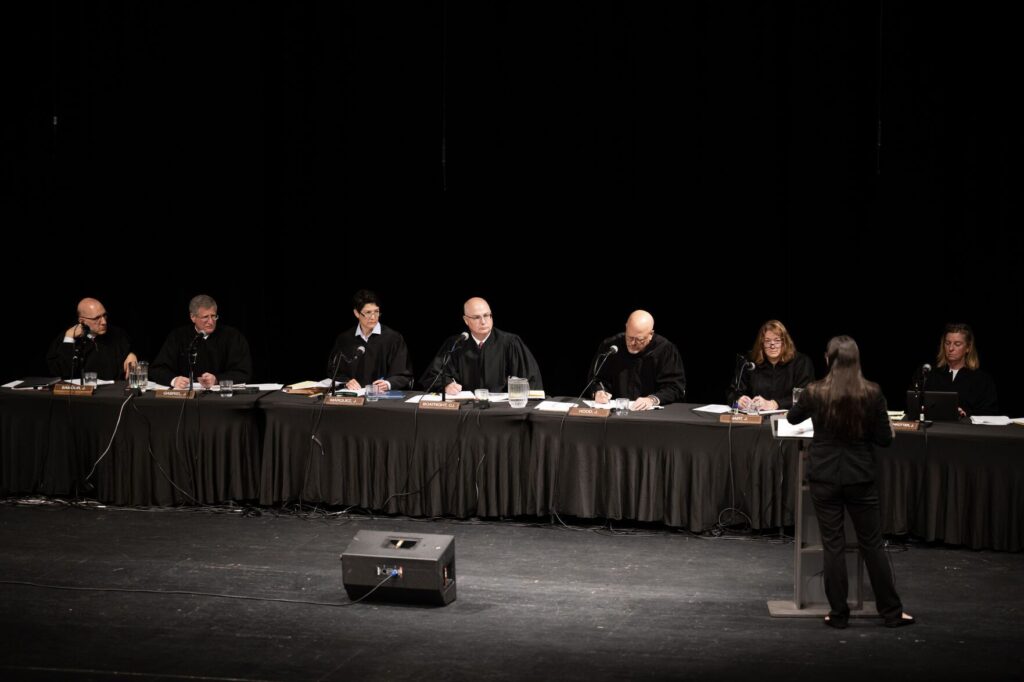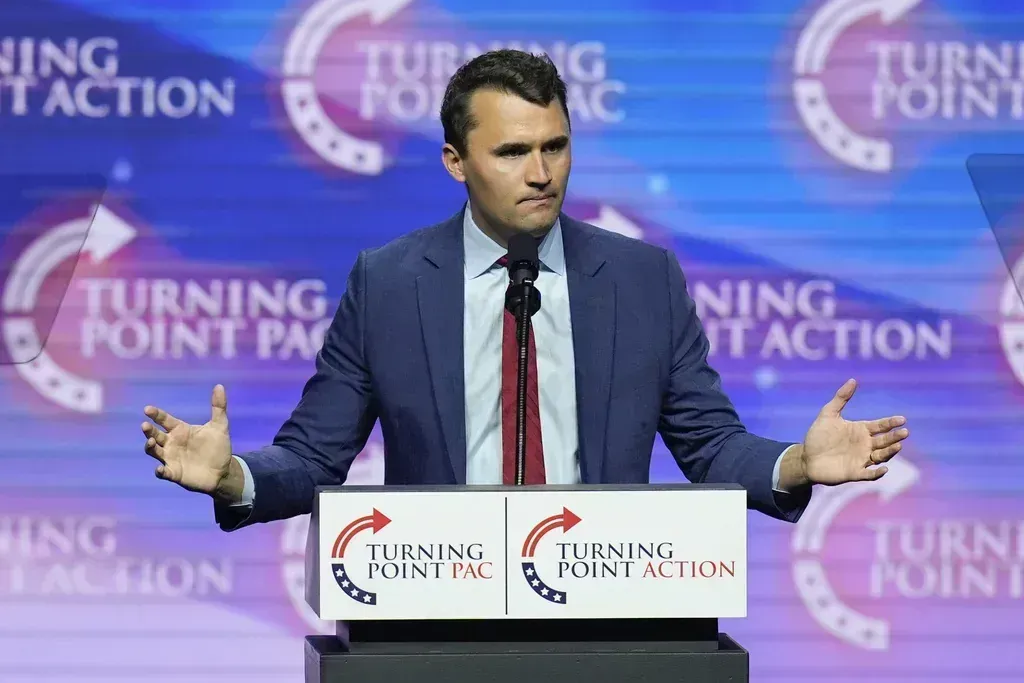In State of the State, Hickenlooper digs back into fiscal thicket
Gov. John Hickenlooper likely had to rewrite the State of the State speech he delivered Thursday, or at least rethink it. He surely thought he would be addressing a Legislature controlled by Democrats working in concert with a Clinton administration in Washington. Things didn’t turn out that way.
Instead, the governor as speaking to the same kind of Legislature he spoke to last year – a divided Legislature where Democrats control the House and Republicans control the Senate. So he delivered a speech similar to the one he delivered last year. At nearly every turn, he lamented the lack of money lawmakers have to spend on “core services” in the state, including education and health care, and on long-overdue updates to the state’s transportation and communication infrastructures.
It was a speech designed to sell members of the public and special interests lever-pullers, hoping they might apply just the right amount of pressure on Senate Republican leaders to bring change. It included a steady mix of familiar Hickenlooper persuasion techniques. There were folksy laugh lines and Quaker-inflected requests for relatively modest investments aimed at making great improvements for those most in need.
“We’ve had this debate for too long,” he said. “If talk could fill potholes, we’d have the best roads in the country.”
“Infrastructure is more than laying out new roads and expanding transit,” he said. “It’s running the fiber and deploying new technologies for reliable, affordable internet in every part of the state. Businesses should be able to open their doors wherever they want; especially in smaller communities. Every school, hospital, clinic and home should have high-speed internet.”
No one in the packed House chamber would deny the problems the governor was describing. Republicans for years have joined Democrats in pushing for increased transportation funding. Most legislators know that, according to the Federal Communications Commission, more than seven out of ten rural Coloradans still lack access to broadband internet.
A zombie plan and a moonshot
But his main proposal was a past proposal, one he acknowledged has lost its luster. As he did last year, Hickenlooper pitched lawmakers on reclassifying the state’s hospital provider fee as an enterprise fund, an accounting adjustment that could free up hundreds of millions of dollars for spending on state programs.
But reclassifying the fee is a plan almost all Republicans in the Capitol have staunchly opposed, dismissing it as a bureaucratic workaround that disrespects taxpayers and as a shortsighted non-solution to chronic budget shortfalls.
Even this early in the legislative session, there just seems to be no wiggle room on hospital provider fee plan. Republicans are ideologically opposed to raising taxes and “growing government” in any way and they also know that, on that score, they could pay an electoral price for bucking the party line. Indeed, influential small-government group Americans for Prosperity, a heavy spender on elections in Colorado, has placed opposing the hospital provider fee reclassification among its top legislative priorities.
When Senate Democrats introduce a bill this year proposing to reclassify the fee, as they plan to do, it will go nowhere, as Senate President Kevin Grantham, R-Canon City, has told anyone who will listen.
This was term-limited Hickenlooper’s second to last State of the State address. As his former chief strategy officer, Alan Salazar, told the Denver Post, there’s little time left for the governor to pull off any extra-ambitious “moonshot” proposals. But, in Colorado, if he managed somehow to address what he calls the state’s “fiscal thicket” – the tangle of constitutional provisions that hold down tax revenues in good economic times and bad – that would qualify as something close to a moon landing.
House Minority Leader Patrick Neville, R-Castle Rock, was unimpressed with the retread arguments in the speech. He said the governor’s priorities were muddled. There’s a difference, Neville argued, between working to raise revenue to fund transportation and simply working to fund transportation.
“If funding transportation is really the priority, then put it at the top of the discretionary spending list,” he said. “We haven’t done that. It’s not at the top of the list. It’s an afterthought. We have more revenue this year than last year, billions more in the budget, but again, no money for transportation. So let’s start with funding transportation and then look at all the other areas to see what’s left and how best to prioritize from there.”
But legislative leaders, including Neville, said they were engaged in ongoing productive conversations, specifically about transportation.
Take it to the voters
One idea reportedly gaining traction would have the Legislature present a transportation-specific sales, income or vehicle tax hike proposal to voters in November.
Senate Majority Leader Chris Holbert, R-Parker, said he favored a “long-term sustainable revenue stream” over any specific tax hike, but he didn’t elaborate.
Rep. Diane Mitsch Bush, D-Steamboat Springs, has dedicated years to addressing transportation challenges, first as a member of planning commissions, then as a county commissioner and now as a state legislator. She said that, even though no single transportation funding plan has emerged at the Legislature yet, she feels there is reason to be hopeful progress will be made at long last.
“Four successive governors have tried the lean and mean approach, looking under the couch cushions for cash. It’s not there. There ain’t that kind of money under the cushions,” she said. “CDOT has been in the red for more than a billion dollars for years. Ok, so the budget grows every year, but so does the state population – it’s bigger than it has ever been.”
“You know, as the governor said, we are losing economic competitiveness because of our lack of transportation funding,” Mitsch Bush said. “Utah is our major competitor. Utah, you know, red state, has approved sales tax, gas tax increases for billions to put into twenty-first century transportation systems. Utah is courting our manufacturing companies on the Western Slope. They have refused to go, so far – so far. But if we continue to fail to put money into I-70 and into our regional airports and into broadband, all bets are off.
Guarding against Washington
Rep. Joe Salazar, D-Thornton, who has openly pushed Hickenlooper from the left, said he took heart from the way the governor pushed back against momentum building in Republican-controlled Washington D.C.
Hickenlooper touted progress made in Colorado on clean air protection, renewable energy development and the expansion of health care insurance coverage.
“Since 2011, we’ve helped over 600,000 people get basic health insurance,” he said. “Ninety-four percent of Coloradans now have coverage. We believe health care is a right not a privilege.”
The room got the message loud and clear. Democrats stood and applauded. Republicans stayed in the seats with their hands still.
“I liked that he made a point of saying we weren’t going to go backwards in our state, no matter what’s happening on Capitol Hill,” Salazar said. “We’re not going to throw people off of our health coverage rolls. As Bernie Sanders said on the Senate floor yesterday, we’re not condemning people to die. People who are sick, who have pre-existing conditions, they need their health care.”
Senate Minority Leader Lucia Guzman, D-Denver, echoed the sentiment.
“I particularly agreed with the Governor’s statement about our healthcare system,” she said. “Healthcare is a right, not a privilege, and repealing our state’s healthcare exchange without any kind of equal replacement would hurt working families,”
Colorado Republicans take a different view, and they’re preparing for change. On Wednesday, Grantham announced that Sen. Jim Smallwood, R-Parker, had sponsored a bill, one of the first bills introduced by the Senate GOP caucus, that would dismantle the state’s Obamacare health insurance exchange, Connect for Health Colorado. The news came as Republican Senators in Washington prepped Congress to repeal the Affordable Care Act.












